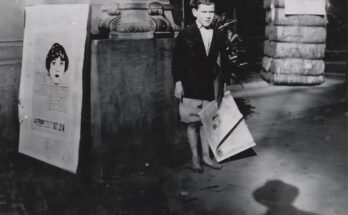Suze Alexander was a young Jewish girl born in the heart of the Netherlands, in the culturally rich and historic city of Amsterdam. Growing up in this vibrant urban center, Suze would have been surrounded by the beauty of the canals, the hum of bicycles, and the sounds of daily life in one of Europe’s most open and liberal cities. As part of the Dutch Jewish community, which had long been integrated into Dutch society, her early childhood may have been filled with warmth, education, and tradition. But behind the serenity of her early years, the dark clouds of Nazi ideology were slowly gathering.
The Nazi occupation of the Netherlands began in May 1940, and it quickly transformed the lives of the country’s Jewish population. What began with laws restricting civil liberties and forcing the registration of Jewish citizens soon escalated into systematic exclusion and persecution. For Suze and her family, the years following the occupation would have grown increasingly frightening and uncertain. Schools were segregated, livelihoods destroyed, and families torn apart by arbitrary arrests and deportations. Suze, still just a child, was thrust into a world of terror and injustice.
By 1942, the Nazis began mass deportations of Jews from the Netherlands, using the transit camp of Westerbork as a central hub. Suze was eventually sent there—Westerbork, located in the northeast of the country, became a place of dread for Dutch Jews, a place where families waited, often for weeks, before being herded onto trains bound for concentration and extermination camps in the East. Conditions in the camp were harsh and overcrowded, and the uncertainty of what lay ahead haunted every moment. For Suze, life at Westerbork would have been filled with fear, confusion, and loss.
In March 1944, Suze Alexander was deported from Westerbork to Auschwitz. She was just one of thousands of Dutch Jews transported during that time, including entire families, children, the elderly, and community leaders. The train journey to Auschwitz, lasting several days, was a grueling experience marked by overcrowded cattle cars, starvation, dehydration, and utter despair. Arriving in Auschwitz, many were immediately selected for death. Others, including women and children, were forced into labor under the most brutal conditions imaginable.
The exact details of Suze’s final days remain unknown. What is known is that she did not survive Auschwitz. Whether she was murdered upon arrival in the gas chambers or perished in the weeks that followed due to the unbearable conditions of the camp, her life, like so many others, was extinguished by a regime that saw her as less than human. Suze, still in the tender years of childhood or early adolescence, became one more name among the 1.1 million victims of Auschwitz, over 6 million of the Holocaust.
Her story is emblematic of the tragedy that befell an entire generation of Dutch Jews—over 75% of whom were killed during the Holocaust. While Suze’s name might only appear in a few surviving records, it represents a life that held promise, a childhood interrupted, and a future that never came to be. Each child victim of the Holocaust reminds us of the scale of the loss, not just in numbers, but in stolen dreams, voices silenced, and families destroyed.
To remember Suze Alexander is to restore a measure of humanity to a life taken unjustly. Institutions like the Holocaust Memorial of the Netherlands and Yad Vashem continue to gather the names, photos, and personal histories of victims to ensure that they are not forgotten. Suze’s memory lives on through these efforts and through every retelling of her brief, painful journey.
In speaking her name and honoring her story, we uphold the moral imperative to remember and to educate. Suze’s death, like that of millions, serves as a solemn warning against hatred, indifference, and the destructive power of ideologies that dehumanize. Her life, however short, matters—and it deserves to be remembered with compassion, dignity, and unwavering truth.


